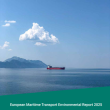The LEGO Group has announced a DKK 19 million ($2.6 million) investment in four carbon removal projects, in partnership with Climate Impact Partners and ClimeFi. The initiatives, which focus on biochar, enhanced rock weathering, and reforestation, will generate carbon removal credits between 2024 and 2026. The commitment is part of LEGO’s broader strategy to explore emerging carbon removal and climate mitigation solutions beyond its supply chain.
KIRKBI, the family-owned investment company behind the LEGO brand, has also pledged DKK 5 million to the same projects. The LEGO Group is supporting two biochar initiatives and one enhanced rock weathering project through its partnership with ClimeFi.
Biochar technology converts waste biomass into a stable form of carbon, preventing its release into the atmosphere while improving soil health. Enhanced rock weathering accelerates the natural breakdown of minerals by spreading rock powder on agricultural land, permanently removing carbon from the air.
Paolo Piffaretti, CEO of ClimeFi said, “The LEGO Group’s early support of these high-quality carbon removal solutions will help drive the growth of the Carbon Dioxide Removal industry and contribute to shared climate goals.”
The LEGO Group has also partnered with Climate Impact Partners to support a large-scale reforestation project in the Lower Mississippi Alluvial Valley (USA) through the purchase of carbon credits. The initiative, managed by the GreenTrees platform, aims to restore over 400,000 hectares of forest in an area that has experienced significant deforestation.
Beyond carbon removal, the project is designed to enhance biodiversity, improve flood protection, and reduce water pollution by minimising nutrient runoff into the Mississippi River.
Sheri Hickok, CEO of Climate Impact Partners said, “This partnership demonstrates how the private sector can play a critical role in financing climate solutions that have both environmental and social benefits.”
As the demand for high-quality carbon removal solutions grows, investments in engineered and nature-based approaches are expected to play a vital role in supporting climate resilience and emissions reduction efforts.




















